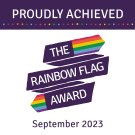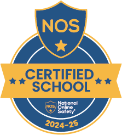
- Home
- Curriculum
- Restorative Behaviour
Restorative Behaviour
Restorative behaviour is at the heart of everything we do at The Marvell College.
Our Rewards and Behaviour Guide for Parents is designed to help parents understand the systems and sanctions at our school whilst recognising that we place a huge emphasis on pupils being rewarded for doing the right thing.
The Marvell College wants to ensure that pupils are rewarded for their efforts, hard work and exemplary behaviour. We want parents to understand restorative behaviour and the following pages outline the school’s positive approach to ensuring pupils behave in a way which helps everyone in the community learn well and flourish both socially and emotionally. We would be grateful if you would read and discuss this with your child.
Our Behaviour Policies can be found by clicking the link here: School Policies
Rewards

Major Awards Ceremonies
At the end of each term there will be an Awards Ceremony where pupils will receive individual awards from their subject and pastoral staff.
BEHAVIOUR
Our values and expectations are instilled in all that we do. We ask that all staff, pupils and parents/carers consistently demonstrate our values and expectations.
Our values:
- Ambition
- Respect
- Courage
Our expectations:
- Polite
- Responsible
- Independent
- Determined
- Engaged
Good Behaviour – the Philosophy
Good behaviour is based around five very simple concepts:
I. That all young people feel valued and enjoy being rewarded for their effort.
II. That young people need clarity in terms of what constitutes acceptable behaviour and the consequences of poor behaviour.
III. That some young people need support to take responsibility for themselves, their actions and need to feel forgiven when problems are resolved.
IV. That effective communication between teachers, parents and pupils is essential in effective schools.
V. That young people need clarity about what is acceptable and the consequences of making mistakes
At The Marvell College we endeavour to maintain the highest standards of behaviour, uniform and attitudes to learning. We have a very clear and transparent approach to dealing with pupil behaviour.
Rationale
The positive behaviours for learning (PBFL) forms a part of the Teaching and Learning policy at The Marvell College to encourage positive behaviour. PBFL will work alongside our quality first teaching in the classroom and our behaviour and rewards policy.

Classroom expectations of teachers:
- Where possible, meet and greet the pupils at the door
- Have an excellent lesson prepared following The Marvell College Learning cycle
- Take the register within the first 10 minutes of the lesson, awarding all pupils a PBFL score of 1 (unless late/no PE kit)
- Use PBFL consistently throughout the lesson, including use of positive language with pupils
- Establish and maintain an organised classroom environment supporting those other colleagues that may teach in there
- End your lesson with pupils stood behind their chairs, dismiss pupils from the door so you have view of the inside and outside of the classroom
- Adjust PBFL scores at the end of the lesson and record achievement/behaviour points
- Repair relationships using school restorative practice protocols
On corridor expectations of all staff:
- Use the values and expectation language with interactions with pupils
- Challenge pupils that fall short of the values and expectations
- Praise pupils who are demonstrating values and expectations
- Record achievement/behaviour points where necessary, use pride point stamp to acknowledge positive behaviours
Promoting positive behaviours for learning
- Have high expectations of all pupils
- Remain consistent and calm in all interactions with pupils
- Acknowledge positive behaviour choices
- Use positive and personal praise
- Use positive reinforcement to extend good behaviour choices
- Use non-verbal reminders
What this looks like for pupils in the classroom
Pride Points are no longer stamped in the planner, these are recorded for each pupil based on their PBFL score each lesson or tutor session.

To maintain a PBFL score of 1, pupils will embody the following:
I am ambitious and will do everything I can to succeed at The Marvell College and beyond.
I am respectful within school and the community and accept different views and opinions.
I am courageous and unafraid to tackle challenging work.
I am polite and communicate appropriately with all members of our community.
I am responsible for my punctuality, equipment and my actions in the lesson.
I am independent and can complete my work in class.
I am determined to not give up easily and learn from my mistakes.
I am engaged with my learning.
We believe that children need to clearly understand the rules and we want to ensure clarity amongst staff and parents. Therefore, the language of the school rules is straightforward and accessible. This helps to underpin our restorative approach and has been agreed between pupils and staff.
Around the college rules:
The following are the around the college rules and will appear in the pupil planner:
I. Do as you are told by staff – first time, every time.
II. Be polite and respect the feelings of others; be kind at all times.
III. Wear your school uniform correctly at all times – remove/put on your jacket at the glass gate.
IV. This is your school; look after it. Look after property and put litter in bins.
V. Eat and drink in the right place at the right time.
VI. Walk around school sensibly and quietly. Remember the one way system and keep to the left; no shouting or running.
VII. The College opens at 08.00; be outside your form room and ready for morning registration at 08.45 and afternoon registration at 13:50. pupils must move promptly to lessons. The College closes at 15.10; after 15:10 no pupil should be on site without staff permission.
Classroom Rules:
The six important classroom rules are stated below and will appear in the new pupil planner:
I. Do as you are asked by staff – first time, every time
II. Do not answer back or challenge staff*
III. Listen carefully when the teacher or another person is talking
IV. Arrive on time, fully equipped and ready to work
V. Put your hand up and wait for permission to speak
VI Always try your best without disturbing others
*Pupils can raise a concern if they feel something is unfair but they must choose an appropriate time and place-this would normally be at break or lunchtime and with their Head of Year.
These are generic and should be applied in all lessons.
Smoking and the use of e-cigarettes is not allowed on school grounds. Any pupil caught smoking cigarettes/e-cigarettes or found with cigarettes/e-cigarettes or cigarette paraphernalia will be placed in the Reflection room at the discretion of the SLT.
Sanctions
At times, of course, we have to recognise and accept that young people will not behave or work in a manner which is acceptable. Where misdemeanours are minor or are a result of carelessness, it is likely that only a clear “verbal warning” will be issued. It is expected that this will be a sufficient prompt for most pupils to work acceptably.
Where misdemeanours around the college are more serious or are persistent in nature then comments will be placed in the pupil planner. Such comments may result in a pupil being placed in a Head of Year Detention, which runs for 1 hour after school the following evening. Where pupils’ behaviour is particularly disruptive or they persistently disrupt the good order of the college, then a period in the Reflection Room may be issued.
Stickers will be issued to pupils who receive a yellow card or are given a Head of Year/ Senior Staff detention. The sticker will be issued on the day the child is informed and the detention will take place the following evening
Reflection Room
The Reflection Room is an extremely serious sanction. The Reflection Room has a functional and purposeful environment where pupils will be provided with the work from their lesson. The room will be sully supervised at all times.
The level of commitment displayed by the pupil will be recorded on the Reflection Room record sheets at the end of each period with the pupil’s performance being monitored at the end of the day. A pupil who works satisfactorily or better will re- join mainstream education, though a record of the period in the Reflection Room will be kept on file. It may also be worth noting once again that this sanction, as with any sanction, can be reached through a gradual process of continued unacceptable behaviour or through the committing of a misdemeanour which is considered sufficiently serious to warrant such an immediate sanction. If a pupil behaves inappropriately in the Reflection Room, then a member of the Senior Leadership Team will decide on the next appropriate action.
Only in extreme circumstances of persistently disruptive behaviour will the Head Teacher/ Deputy Head Teacher consider the option of a suspension.
Restorative approaches help to support and move on from negative behaviour; these restorative approaches include: family problem solving circles, solution focused interventions, restorative parental meetings which involve the wider family.
It is essential to highlight, that we expect very few pupils to be doing anything other than enjoying school life and working well at The Marvell College. As a result they will receive the rewards and benefits that go with such an approach.
The Pupil Planner
The pupil planner is at the heart of the restorative behaviour system and is the main form of contact and communication between home and school.
All pupils must carry their planners with them at all times when in school. Pupils who arrive at school without their planners on the third occasion in a half term will issued a Head of Year detention. On the first occasion pupils will be provided with a planner sheet (a replacement planner page) to use on that day.
We expect pupils to be proud of their planner and therefore the planner should not be defaced; if the planner is defaced in any way the pupil must buy a new planner. If the planner is graffitied or damaged a new planner must be bought at a cost of £4.50.
The planner should be signed on the previous week by a parent or carer and this will be checked by the Form Tutor each week. If the planner is not signed on the previous week the form tutor will issue a negative comment on the previous week.
Mobile Phones
Mobile phones are brought to school at pupils’ own risk and must be switched off and left in bags during the school day. They must not be on view or in a pupil’s pocket.
If any pupil has a mobile out on school premises or it goes off, it will be confiscated until the end of the school day. Repeat offenses during a half term period may result in parents/carers being called in and having to collect the phone.
Anti-Bullying
At The Marvell College we are determined to provide our pupils with a safe, secure and happy environment in which to learn. We expect high standards of behaviour and do our best to encourage our pupils to mature into responsible and valued members of the community. Bullying will not be tolerated.
It can usually take one of four forms
Physical e.g. hitting, fighting, taking belongings
Verbal e.g. name-calling, insulting remarks – Any verbal bullying that is construed as racist, sexist or homophobic may result in a suspension. The Marvell College adopts a zero tolerance policy on this form of deeply offensive bullying.
Indirect e.g. rumour-mongering, excluding someone from social groups
Cyber-bullying e.g. texting, use of websites etc
Raising awareness through the curriculum
Bullying is a major element of the PSHE programme in Year 7 so that pupils are immediately aware that bullying behaviour is unacceptable and will not be tolerated.
PSHE lessons throughout KS3 and KS4 continue to address the problem of bullying and peer pressure during the examination of other topics, such as drugs, adolescence.
Form Tutors are encouraged to discuss bullying as and when appropriate.
English and Drama lessons may be used to explore bullying issues.
Assemblies are periodically used as a vehicle for raising awareness, using relevant examples.
Audits are taken, through questionnaires of pupils’ experiences of bullying which then inform the PSHE curriculum.
All incidents are treated seriously by staff and referred to the Year Teams/Senior Member of staff as soon as possible.
Written statements are taken from all pupils involved.
Both the ‘victim’ and the ‘bully’ are made aware that the school views any incident of bullying very seriously.
It is imperative that the victim is supported and is given help.
Every effort must be made to resolve the situation immediately. Where appropriate, ‘victim’ and ‘bully’ should be brought together to discuss the incident as part of our restorative practice.
Follow up procedures should check that the bullying has not resumed. The Lead Member of staff will judge the seriousness of the incident. In the case of a minor ‘one off’ incident, in which no physical harm is done, a reprimand may be sufficient. More serious or persistent cases will necessitate the involvement of the Assistant Head Teacher. In these cases, parents must be informed and invited into school.
Sanctions must be clear, consistent and appropriate to the seriousness of the incident.
Where other strategies do not resolve the problem, permanent exclusion may be justified in the most serious and persistent cases, particularly where violence is involved.
Restorative Practice
Restorative practice is a term used to describe behaviours, interactions and approaches which help to build and maintain positive, healthy relationships, resolve difficulties and repair relationships where there has been conflict.
When we work with and alongside people, there is strong evidence to suggest that outcomes for all stakeholders are improved.
Restorative practices enable those who work with children to focus on building and maintaining relationships that create and inspire positive change. Creating change at times requires challenge as well as support.
At the Marvell College, we use restorative practice as one of our key tools to promote and maintain positive relationships with all stakeholders.
Using restorative approaches, we provide staff with an array of language, behaviours and tools that strengthen their relationships with children, young people and families, empowering them to share responsibility by using a solution-focused approach, which supports positive change.
Restorative approaches are widely established and accepted both nationally and internationally as a highly effective way of achieving better outcomes for children and young people.
Restorative practices are an important part of the way in which we support students to become better equipped to understand and address challenges.
There are 5 core beliefs of Restorative Practice.
1. Everyone has a unique perspective and a valued contribution to make – we need to hear what people have to say.
2. Our thoughts influence our feelings and both influence what we do and say – we need to unpick what is going on behind behaviour.
3. Our actions and deeds impact on those around us – we need to consider the consequences of our actions on ourselves and others.
4. All our actions are strategies we have chosen to meet our needs at the time – we need to be part of identifying what we need and identifying how our needs will be met.
5. The people who are affected by an issue or difficulty are those best placed to find ways forward in collaboration with each other – we need to be enabled and empowered to make positive and sustainable changes for ourselves.
A restorative approach is:
- developing and maintaining positive relationships
- seeking to understand need
- creating a sense of belonging
- solution focused
- a pro-active way of working with all stakeholders
- empowering all stakeholders
- maintaining high expectations
- separating the action from the perpetrator
- making connections before corrections
A restorative approach is not:
- excusing behaviour
- lowering expectations
- shaming or judging any stakeholder
Facilitating Restorative Practice:
Restorative practices take place either formally, or informally and enable stakeholders to communicate effectively. The process focuses on:
- building and maintaining positive relationships
- identifying need
- removing barriers
- proactively promoting a sense of community
- understanding responsibility and shared accountability
The person who has been negatively impacted has the opportunity to speak first and may be asked the following questions (or a modified version of them):
- What happened?
- What did you think when you realized what happened?
- What was the impact of this incident on you? On others?
- What has been the hardest thing for you?
- What do you think needs to happen to make things right?
Then the person who has had the negative impact may be asked:
- What happened?
- What were you thinking at the time?
- What have you thought about the situation since?
- Who has been affected by what you did? In what way?
- What do you think you could do to make things right?
It is hoped that the effective use of restorative practices will allow for:
- Addressing and discussing the needs of the school community and individuals
- Building and maintaining healthy relationships with all stakeholders
- Resolving conflict, holding individuals and groups to account
- Reducing, preventing, and improving challenging behaviour
- Repairing harm and restoring positive relationships.




